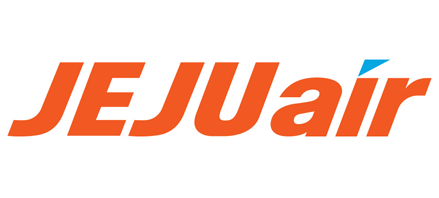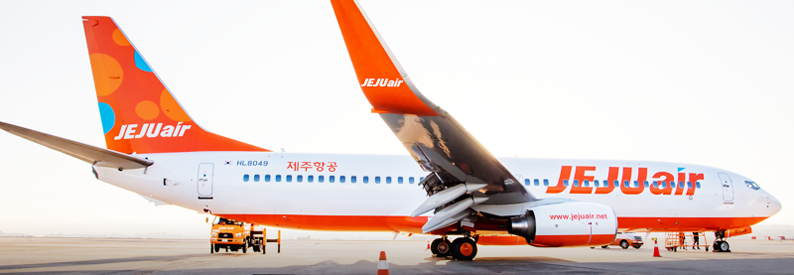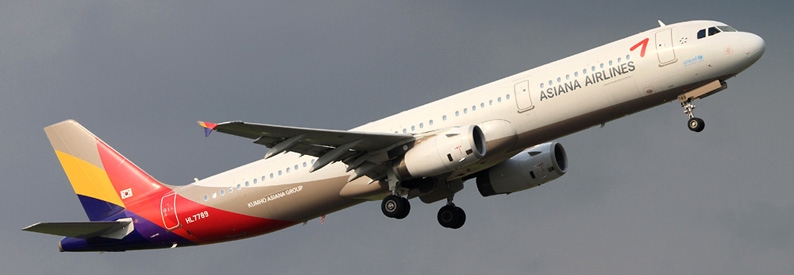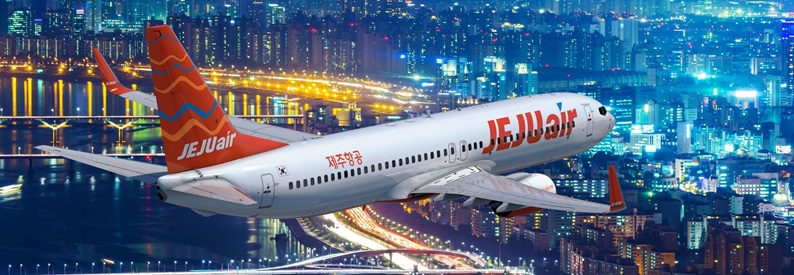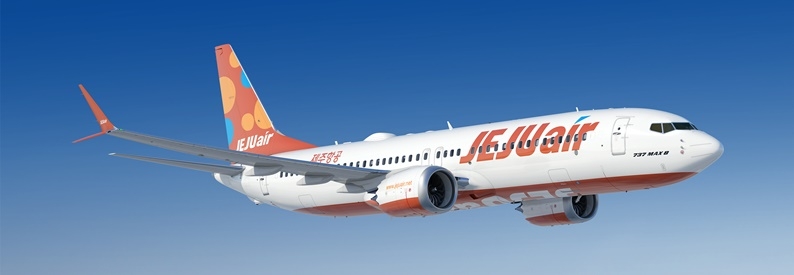Jeju Air (7C, Jeju) is pursuing a large-scale capital increase to raise a further KRW320 billion won (USD237 million), money that will be used “to fund facilities such as the introduction of next-generation aircraft,” it announced in a regulatory filing on August 29.
The South Korean budget carrier will issue 27,234,043 common shares at an estimated price of KRW11,750 (USD8.71) per share, much lower than its stock price on the day. The shares will be sold to majority owner AK Holdings, the holding company for cosmetics and health conglomerate Aekyung Group.
Once the rights offering is completed, expected to be in November, the number of Jeju Air’s total issued shares will increase from 49,759,668 to 76,993,711. The carrier’s share price slumped on the news by 15% before easing to a 10% fall, local media reported, as a rights issue will inevitably cause a share price dilution.
South Korean airlines have been seeing rising passenger numbers after the pandemic, but because many Koreans flew overseas during the summer season the recovery has not been enough to benefit low-cost carriers. That has forced them to seek other revenue streams to stay afloat. Jeju Air’s financial troubles are now spreading to Aekyung Group as it continues to bleed funds, The Korea Times reported.
AK Holdings has a 51.06% stake in Jeju Air, and its own finances have been deteriorating as it injects more capital into the carrier. Just ten days ago, it announced it was arranging a fundraising of up to KRW100 billion (USD74.4 million) through exchangeable bonds, which takers can covert into the airline’s shares within three months and have the option to redeem their investment after two years.
Since 2020, Aekyung has made paid-in capital increases amounting to nearly KRW700 billion (USD520 million). Current liabilities that Jeju Air must repay within one year with insufficient liquidity total KRW247.2 billion (USD184 million), forcing it to conduct this latest capital raise to repay loans that are reaching maturity, sources told the newspaper.
AK Holdings’ cash and cash equivalents stood at KRW779 million (USD578 million) at the end of June, and for it to take part in the capital increase it must sell shares in its subsidiaries or resort to more borrowing.
According to the ch-aviation Commercial Aviation Aircraft Data module, Jeju Air currently operates a fleet of thirty-seven B737-800s, all but two of which are leased, plus one B737-800(BCF). It has outlined plans to buy forty new B737-8s from Boeing and these delayed deliveries are due to start next year. Earlier this year, it also said it was planning to add an unspecified number of B737 freighters, the first of which arrived in June.
